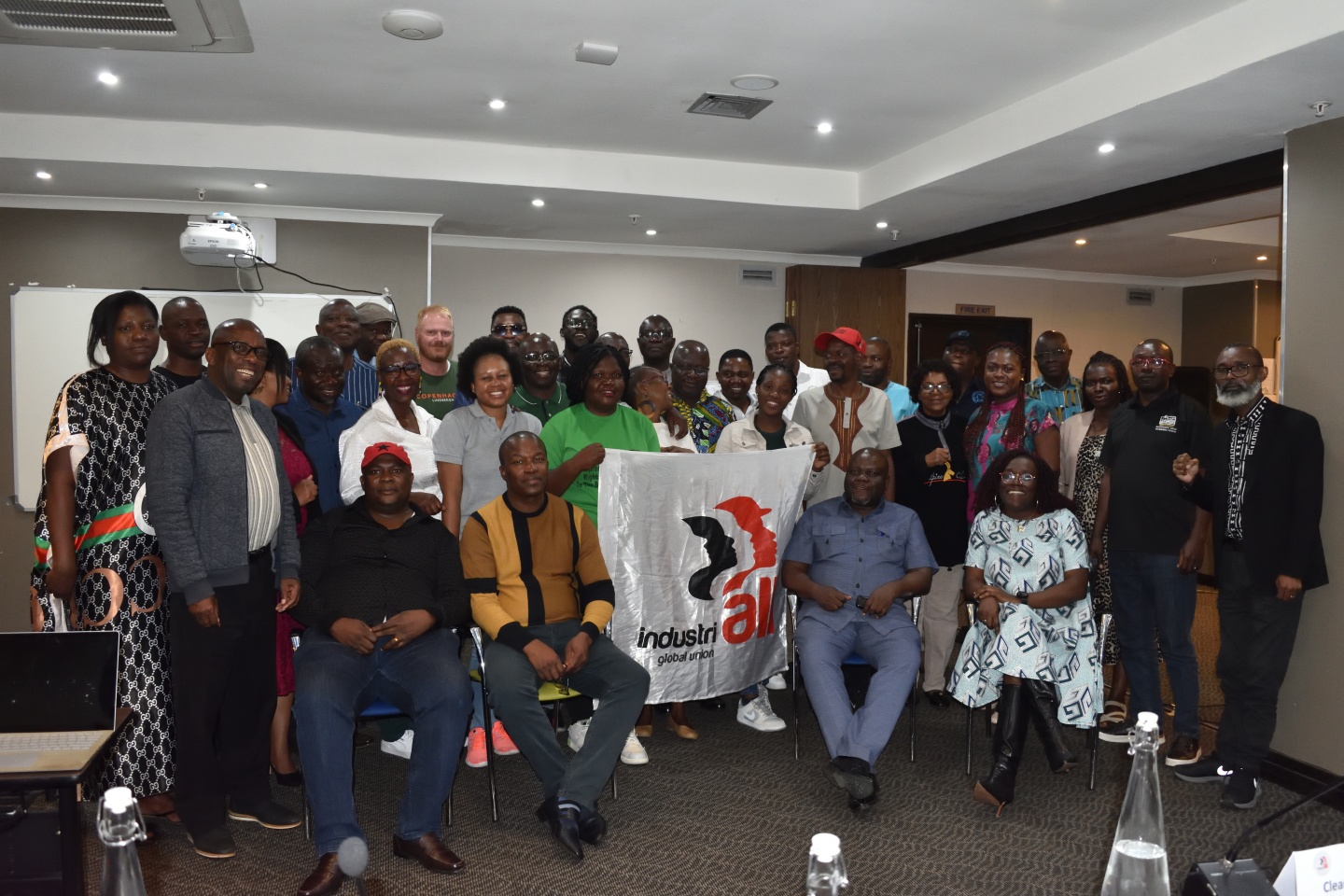22 July, 2024As trade unions in Sub-Saharan Africa (SSA) develop Just Transition strategies as their countries transition from high to low carbon energy sources emphasis is placed on business and human rights especially in the mining of critical transition minerals.
Unions are advocating for the implementation of human rights due diligence and responsible business practices in the mining of critical minerals. Their goal is to mitigate the adverse impact of the transition on human rights and protect the rights of workers and communities. These were key issues discussed at the Just Transition and Human Rights Due Diligence forum in Lusaka, Zambia, on July 15-16.
The forum was hosted by the SSA regional office in partnership with the United Federation of Denmark (3F). Trade union leaders from IndustriALL Global Union affiliates in Gabon, Ghana, Kenya, Malawi, Senegal, South Africa, Uganda, Zambia, and Zimbabwe agreed to use evidence-based strategies in their Just Transition plans. Labour research organizations also participated at the meeting.
To assist trade unions in formulating their strategies, the IndustriALL SSA regional office has commissioned research entitled: Mapping of green jobs, skills development, and the just energy transition which will look at the job creation potential in the renewable energy value chains and critical transition minerals with examples from South Africa. The research will be conducted by the Sam Tambani Research Institute (SATRI) - a research arm of IndustriALL affiliate, the National Union of Mineworkers (NUM).
Another research, which will be conducted by the Labour and Economic Development Research Institute of Zimbabwe (LEDRIZ), will focus on: Mapping the impact of investment flows in the labour and trade union rights in transitional minerals and renewable energy sectors in Zimbabwe. There will also be a research paper on the African Mining Vision (AMV) to analyze linkages between the AMV, critical transition minerals, and Just Transition.
Unions in the energy sector agreed to cooperate on how to engage on the privatization of state-owned power utilities as the processes were similar across countries as they involved unbundling of the entities into generation, transmission, and distribution units.
Rhoda Boateng, program coordinator for climate change at ITUC Africa, said the main recommendations for trade unions at the Conference of Parties of the United Nations Climate Change Conference (COP) were to:
“Actively mobilize at sectoral and national levels for enhanced climate action, and to engage policy makers on the integration of Just Transition plans.”
Bjorn Haar, 3F regional coordinator and representative said:
“The aim is to ensure that during the transition workers and communities do not suffer due to job losses or declining economic activity within their communities, and that inequalities and adverse impacts are addressed. As trade unions we are obligated to make sure that real social dialogue is going on and that we have a well-organized labour market, that includes the informal sector.”
Paule France Ndessomin, IndustriALL regional secretary for SSA said:
“This forum is part of continuous dialogue for unions on the Just Transition and business and human rights in the energy, mining, and manufacturing industries, that will be affected by the transition to low carbon renewable energy sources.”
“This forum is vital because companies must respect International Labour Organization fundamental rights at work and exercise due diligence across critical minerals supply chains. Further, unions must use collective bargaining as a key strategy to the transformative agenda,”
said Glen Mpufane, IndustriALL mining director.
The critical transition minerals found in SSA include copper, lithium, nickel, cobalt, bauxite, graphite, rare earth elements, manganese, chromium, molybdenum, zinc and silicon.





